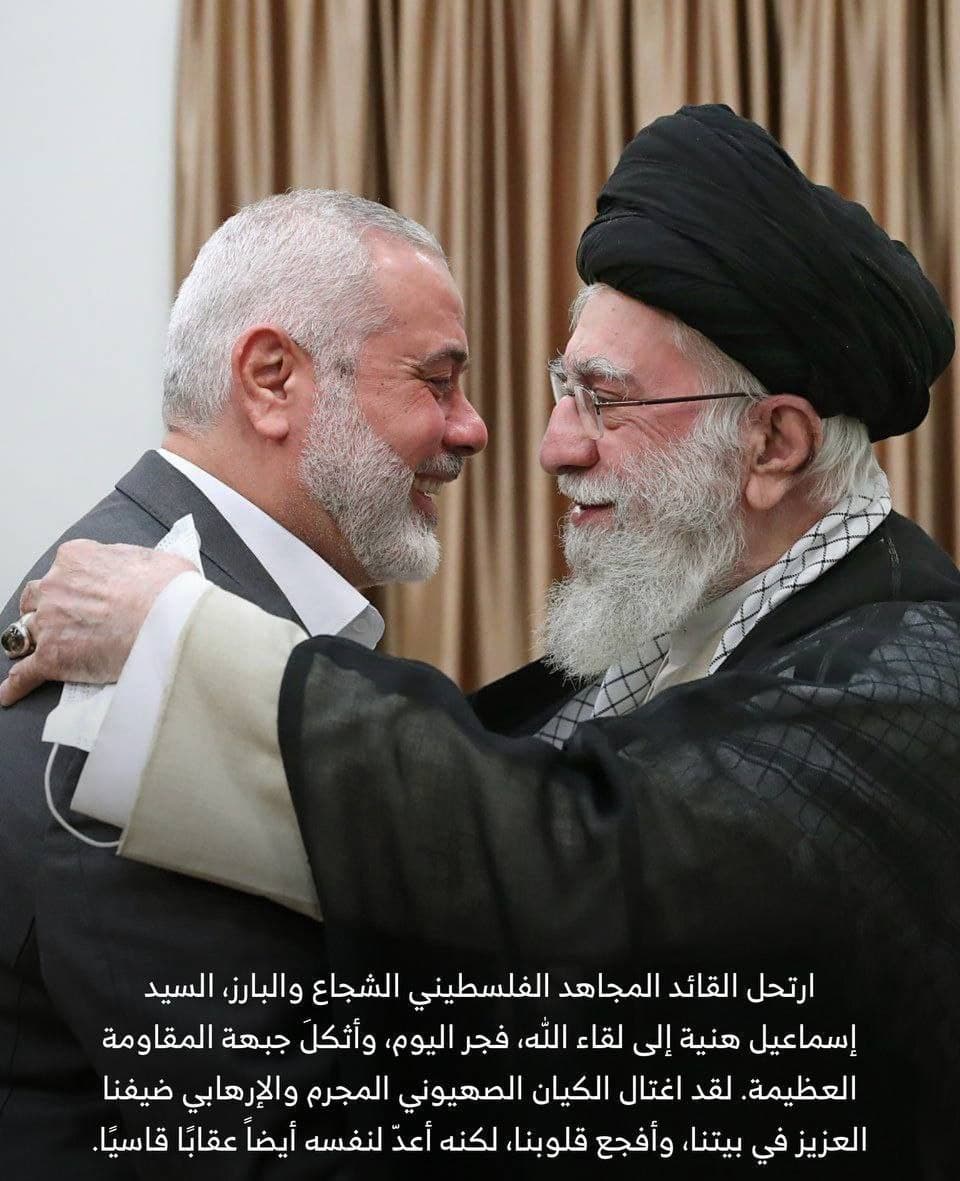Hamas and Iran Commemorate Ismail Haniyeh"s Assassination, Heightening Regional Tensions
Today marks the first anniversary of the assassination of Ismail Haniyeh, the head of Hamas’s political bureau, a pivotal event that has intensified tensions in the Middle East. Haniyeh was killed by Israeli forces in Tehran, where he was attending the inauguration of Iran"s president, Masoud Pezeshkian. The assassination occurred late at night while Haniyeh and his bodyguard were asleep in a secure facility operated by the Iranian Revolutionary Guard Corps (IRGC), raising questions about security and the implications for the ongoing conflict between Israel and Hamas.
Background & Context
The assassination of Ismail Haniyeh has profound significance within the complex web of Middle Eastern politics. Haniyeh was not only a key figure in Hamas but also a symbol of Palestinian resistance against Israeli policies. His presence in Tehran highlighted the strong ties between Hamas and Iran, a relationship that has been pivotal in the financing and equipping of militant activities in Gaza. The killing of Haniyeh, who was seen as a moderate voice within Hamas, has led to increased radicalization within the group and a shift in its approach towards Israel.
Haniyeh’s assassination fits into a broader pattern of Israeli actions aimed at dismantling leadership structures within Hamas and other militant groups. The incident has further complicated the already fragile security situation in the region, prompting both Hamas and Iran to reevaluate their strategies and responses to Israeli military actions. As previously reported, this assassination has also sparked a wave of retaliatory rhetoric and threats from both Hamas and its Iranian allies.
Key Developments
In the wake of Haniyeh"s assassination, Hamas has vowed to continue its struggle against Israel, with leaders calling for increased resistance and unity among Palestinian factions. Iranian officials have expressed their outrage over the assassination, framing it as an act of aggression that justifies a stronger response against Israel. Statements from Iranian leadership indicate a commitment to support Hamas, both militarily and politically, as they view the group as a critical ally in their regional strategy.
Official commemorative events are being held today in both Gaza and Tehran, with speeches emphasizing Haniyeh’s legacy and the importance of ongoing resistance. These events serve to rally support for Hamas and reinforce its narrative of martyrdom against Israeli oppression. The heightened emotions surrounding this anniversary could lead to escalated tensions and potential violence in the region, as both sides prepare for potential confrontations.
Broader Impact
The assassination of Haniyeh has significant implications for the geopolitical landscape of the Middle East. Analysts suggest that this incident may lead to a more unified front among Palestinian factions, potentially complicating future peace negotiations. The relationship between Hamas and Iran is likely to deepen, given the shared interests in resisting Israeli military actions. This could result in increased Iranian support for Hamas in terms of logistics and military resources.
Moreover, the broader Arab-Israeli conflict may see a resurgence of violence as Hamas seeks to assert its position following Haniyeh"s death. The leadership vacuum left by Haniyeh could also lead to internal power struggles within Hamas, as various factions vie for control and influence. As regional dynamics shift, neighboring countries are closely monitoring developments, particularly as the U.S. continues its diplomatic efforts in the region. For instance, recent developments in U.S.-Israel relations could be influenced by the fallout from this assassination.
What"s Next
As Hamas and Iran commemorate Ismail Haniyeh’s assassination, the immediate future likely holds increased military posturing from both sides. Analysts predict that Hamas may escalate attacks on Israeli targets as a show of strength and retaliation for Haniyeh’s death. Additionally, Iran may ramp up its support for other militant groups in the region, aiming to counteract Israeli influence and assert its role as a leader in the resistance against Israel.
International observers will be watching closely for any shifts in the conflict dynamics, particularly as regional alliances are tested. The ongoing situation underscores the need for renewed dialogue among all parties involved to prevent further escalation. As tensions rise, the potential for violence remains high, making the coming weeks critical in determining the trajectory of the Israeli-Palestinian conflict.


![[Video] Heavy clashes and gunfire reported in Baghdad, Iraq](/_next/image?url=%2Fapi%2Fimage%2Fthumbnails%2Fthumbnail-1768342239932-848qsh-thumbnail.jpg&w=3840&q=75)




![[Video] Gunfire between Iraqi security forces and Sadr militias in Baghdad](/_next/image?url=%2Fapi%2Fimage%2Fthumbnails%2Fthumbnail-1768343508874-4redb-thumbnail.jpg&w=3840&q=75)
